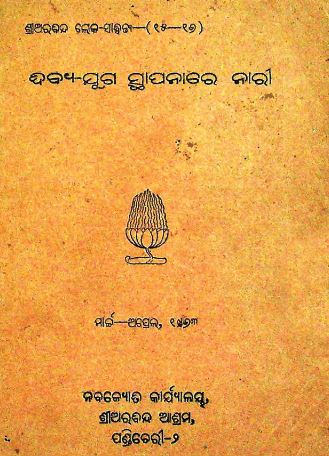Dibya Jug Stapanare Nari is an Odia essay book written by Ramkrusna Das and published in 1963. In this remarkable piece of literary work, Das explores the evolvement and significance of women in shaping society and the world at large.
The book delves into the divine essence of women, referring to them as the creators of the universe. Taking inspiration from ancient mythologies, mythological characters, and historical references, Das beautifully depicts the role of women in the creation and destruction of civilizations.
Through a series of thought-provoking essays, Das highlights the journey of women from being passive observers to active participants in societal transformations. He examines the power dynamic between men and women and challenges traditional notions of gender roles.
Das’s writing is marked by deep philosophical insights and poetic language, enabling readers to appreciate the inherent strength and resilience of women. He showcases their ability to overcome adversity, display compassion, and foster harmony in the world.
Drawing upon historical events and contemporary examples, Das also sheds light on the struggles faced by women in their pursuit of equality and empowerment. He advocates for the elimination of discrimination based on gender and emphasizes the need to provide women with equal opportunities and rights.
“Dibya Jug Stapanare Nari” serves as a powerful ode to women, their compelling narratives, and their indomitable spirit. Through this book, Ramkrusna Das encourages readers to acknowledge and celebrate the contributions of women in shaping the past, present, and future.
Published in 1963, this book remains relevant today as it prompts readers to reflect on the progress made, while inspiring further advancements towards gender equality and women’s empowerment. “Dibya Jug Stapanare Nari” stands as a timeless tribute to the pivotal role of women in the continuous evolution of society.
Books Info
| Books name | Dibya Jug Stapanare Nari/ଦିବ୍ୟ ଯୁଗ ସ୍ଥାପନାରେ ନାରୀ |
| Author | Ramkrusna Das |
| No Of pages | 65 |
| Publisher | Nabajyotu Karjyalaya |
| Publication | 1963 |
| Printed At | NA |
| Distributor | NA |

